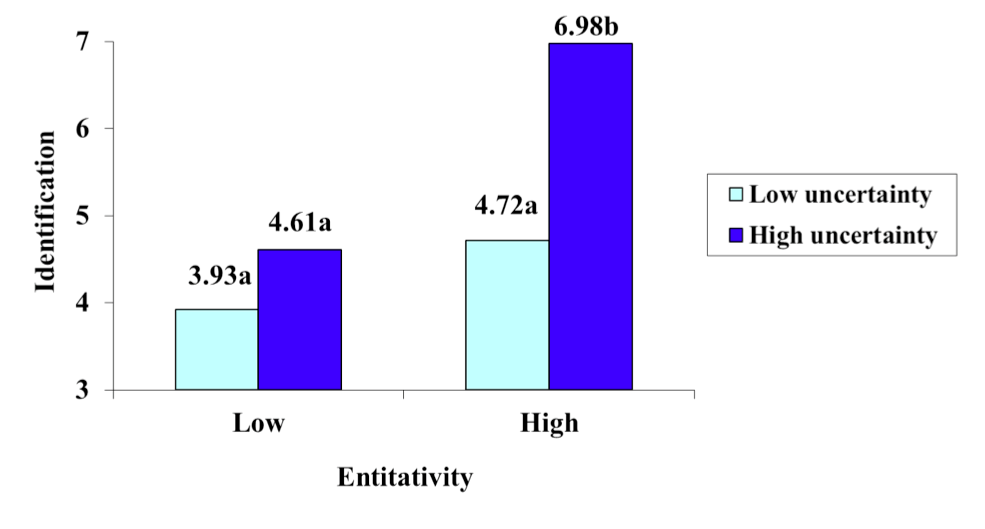Michael Hogg’s shared his research on the role social identity and uncertainty. Just giving a groups a categorical names can create in group and out group dynamics: individuals trust, favor and conform to their in group and distrust, discriminate, and compete with the out group. This research forms the foundation of social identity theory – the relationship between self and group. And what motivates this is often feeling better about oneself.
Michael’s work looks more specifically at a specific kind of uncertainty, identity uncertainty. Overall, individuals are motivated to reduce uncertainty. And there are many sources of identity uncertainty – loosing your job, having children, moving to a new c ountry, etc. When folks are dealing with uncertainty, social identity gives people a way to help make sense of their experiences to help them reduce uncertainty.
ountry, etc. When folks are dealing with uncertainty, social identity gives people a way to help make sense of their experiences to help them reduce uncertainty.
A key finding is that uncertainty strengthens identification with groups. Identification reduces uncertainty and the more entitative a group the stronger the effects. Interestingly, when experiencing identity uncertainty, people on the periphery are more apt to engage in radical behaviors to secure their status in the group.
I wonder: What would it look like to de-entitativize a group construct? Would that enable people to cling to it less in the face of uncertainty? What happens with the social identity is actually hindering dealing with the uncertainty?
